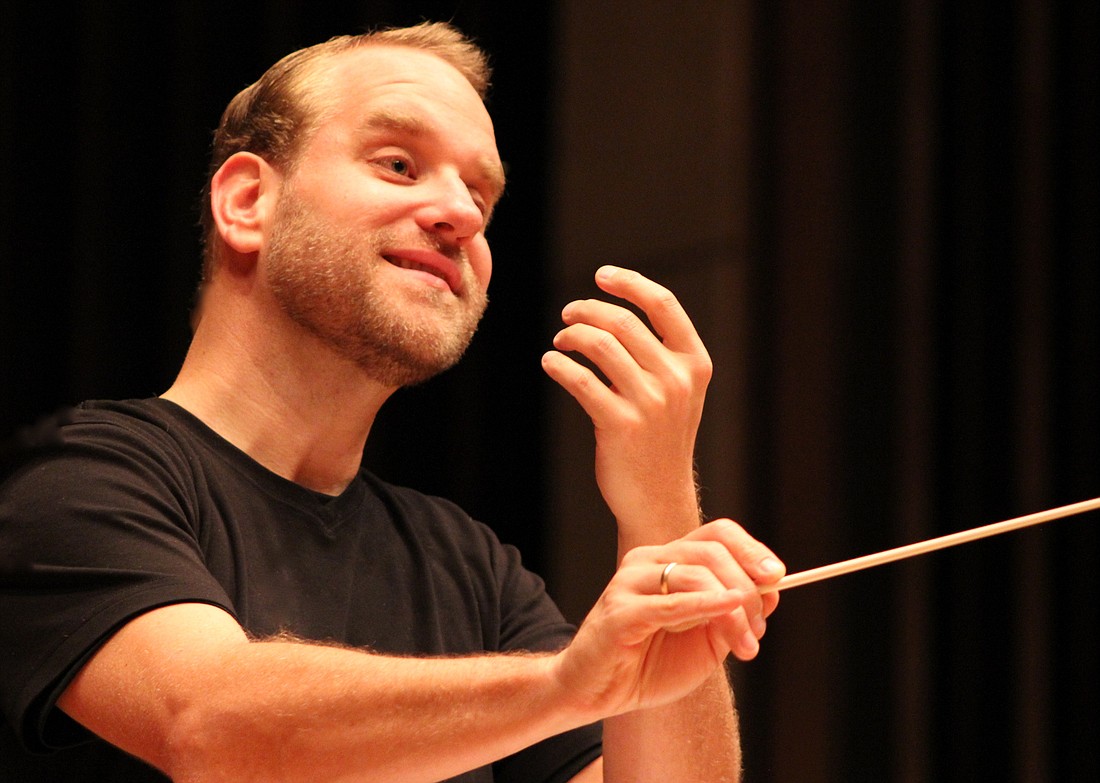- June 15, 2025
-
-
Loading

Loading

This season the Sarasota Orchestra is offering a new series of concerts at the Sarasota Opera House. Dubbed “Discoveries,” these concerts feature a member of the orchestra as soloist in a 75-minute concert of favorite and lighter concert fare designed to introduce the orchestra to new audiences.
“Musical Landscapes” was the theme of the second concert in this series last Saturday night. It featured Natalie Helm, principal cellist, together with guest conductor Stefan Sanders. These landscapes were indeed pastoral in feeling, lending a somewhat low-key late spring and summery feeling inside, contrasting with the still breezy and chilly weather outdoors.
Eric Whitacre’s “The River Cam”was commissioned by cellist Julian Lloyd Webber (brother of Andrew,) and is an introspective tone poem very much in the style of Delius and Vaughn Williams. With its quiet themes and rhapsodic feeling, it affords Helm ample opportunity to display her rich beautiful sound and phrasing. Her playing is always musical and elegant, and she is an outstanding soloist as well as a stalwart leader of the cello section.
Although he is known as the Dean of American composers for his works for ballet, film and concert hall, Aaron Copland’s musical gifts did not seem to extend to dramatic works for the stage, so his opera “The Tender Land” is seldom performed. Sanders chose two selections from the opera: “Party Scene” and “The Promise of Living” for this concert. Both are vintage Copland, from the rhythmic dances reminiscent of his ballet scores to the lovely hymn tune settings, all of which were beautifully realized by the players in the orchestra.
Samuel Barber is primarily known for his vocal music, for he was not only a singer, but the nephew of famed contralto Louise Homer. Also an outstanding pianist, Barber arranged his “Souvenirs,” originally for piano-four hands, for full orchestra as a ballet. Throughout the three excerpts I could hear the influence of Ravel, both in melody and orchestration, but it was pure Barber and all-American throughout. I wish more “Souvenirs” had been included on this concert.
Sanders opened the concert with Smetana’s “The Moldau” from his orchestral suite “My Country.” Decidedly programmatic, it traces that river from its tiny beginning as a trickling stream, upward in its course, through weddings and rapids until it joins the mighty Elbe. Sanders led a competent but uninspiring performance of this audience favorite, which was well played by the orchestra, but he failed to light any sparks.
The concert ended with an unlikely piece of orchestral fluff from Peter Maxwell Davies, “An Orkney Wedding, With Sunrise,” depicting all the goings-on at a wedding and reception in the Orkney Islands off the northern coast of Scotland. A true musical narrative, “Orkney Wedding” graphically depicts the wedding and celebration. This celebration is complete, depicting rather amateur musicians, tuning up, playing, and everyone becoming ever warmer and more mellow through repeated doses of Highland Dew. Provoking a cacophony of near noise, the revelry is interrupted by the sunrise, portrayed by the piercing and pungent sounds of bagpipes from the rear of the opera house. Parading down the aisle in full kilt and kaboodle, Gary Reinstrom’s piping certainly roused everyone in the audience, gaining applause has he marched up the stairs onto the stage, bringing the concert to an end and piping us all into a new year.